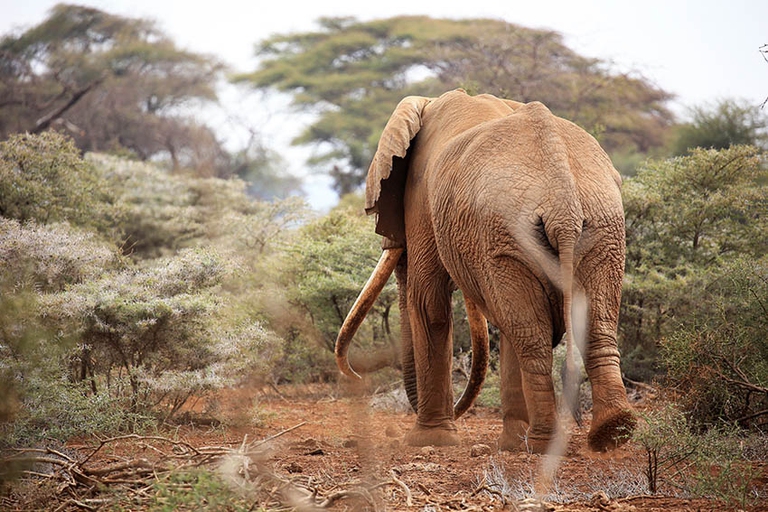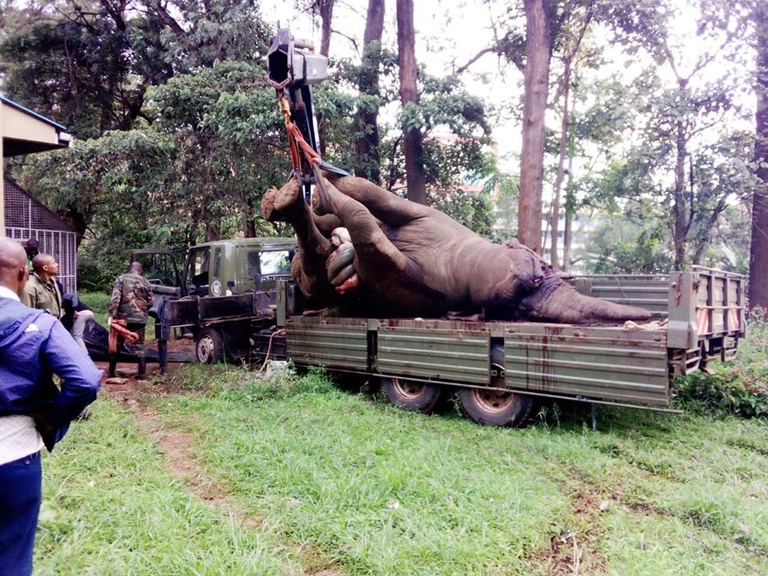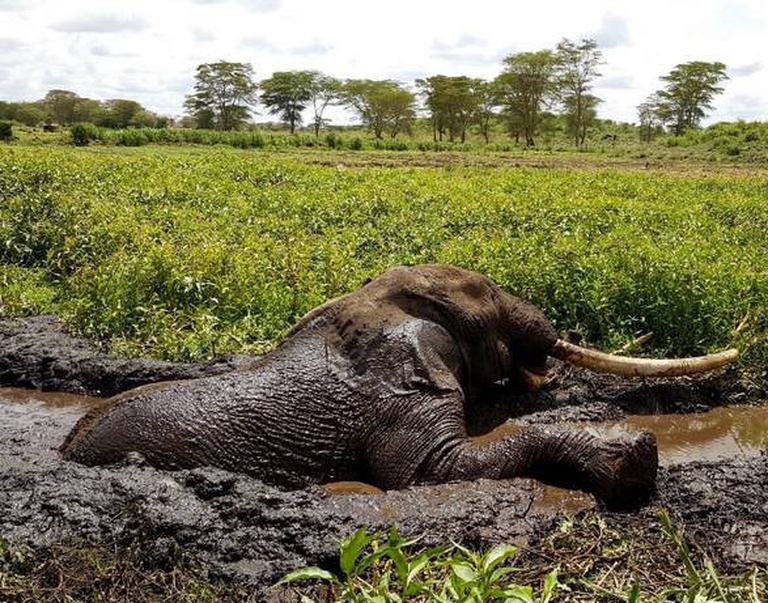
Our species took its first steps in a world covered in trees. Today, forests offer us sustenance, shelter, and clean the air that we breathe.
One of Africa’s last and largest “tuskers”, Tim the elephant, died from natural causes after roaming Amboseli National Park for five decades and surviving multiple life-threatening attacks.
Africa has lost its most famous iconic elephant, nicknamed Big Tim, recognised as one of the continent’s largest elephant. The giant bull who roamed the wilderness of Amboseli National Park in Kenya belonged to a clade of impressive pachyderms whose genes produce enormous tusks. He died aged 50, from natural causes.
Post-mortem results show that Tim died from a twisted gut and the only marks on his body were the imprints left by his companion who presumably tried to lift the great “tusker” back on his feet. Meanwhile, Kenya Wildlife Service (KWS) have retrieved the animal’s body and moved it to the National Museum in Nairobi for exhibition and education purposes.
“Our hearts are broken, because Tim was one of Africa’s very few super tuskers, and an incredible elephant whose presence awed and inspired many,” Wildlife Direct, a Nairobi-based conservation campaign group, commented. “He was one of Kenya’s national treasures and we’ll forever miss him”.
In the words of former Save the Elephants field assistant Ryan Wilkie, “Tim was a special elephant not just to me but to hundreds, thousands of people who would flock to Amboseli just for the chance to get a glimpse on him. The giant was so incredibly intelligent, mischievous, yes, but also a truly gentle giant and in that way a real ambassador for his species”.
“It’s remarkable that Tim had gotten to that age, given that each day he faced just about every threat possible to his species,” according to the Big Life Foundation, a non-profit conservation organisation focused on preserving the wildlife and habitats of the Amboseli-Tsavo-Kilimanjaro ecosystem.
“Within his first few years of life he lost three of his relatives to suspected poaching incidents, followed by his mother Trista, who was speared to death in 1978 by poachers when he (Tim) was only 8 years old. And there was worse, Tim continued to lose more family members as time passed, including his much-loved sister Tallulah, ruthlessly speared in 2003″.
Read more: Southern African states threaten to quit CITES over restrictions on the ivory trade
On the other hand, Tim’s ravenous hunger for crops nearly cost him his life: in the last five years on his way to 50, he was speared three times by angry farmers during his routine night-time raids into farmlands. Most recently, in November 2018, Tim got stuck in a mud-pit deep in Kimana Swamp. It took Kenya Wildlife Service, Big Life and Sheldrick Wildlife Trust a monumental effort to rescue him.
Furthermore, this was not the first time Tim’s life was threatened. In 2014 he was spotted limping around the park as he’d been speared in the rump and the wound turned septic. Luckily, the vets packed the injury with green clay, which has antibacterial properties, and he soon recovered.
Read more: Rhino poaching decreases in South Africa for the fifth year in a row
According to the International Union for the Conservation of Nature (IUCN), Africa’s elephant population had seen its worst decline in 25 years, mostly as the result of intensified poaching for ivory. In East Africa, elephant populations have nearly halved in a decade. Meanwhile, southern Africa remains a stronghold in which more than 293,000 animals live, or 70 per cent of the estimated remaining African elephants.
Undoubtedly, Big Tim has left a huge hole in the heart of Amboseli, though it’s comforting to think that his genes live on in many of the national park’s other elephants.
Siamo anche su WhatsApp. Segui il canale ufficiale LifeGate per restare aggiornata, aggiornato sulle ultime notizie e sulle nostre attività.
![]()
Quest'opera è distribuita con Licenza Creative Commons Attribuzione - Non commerciale - Non opere derivate 4.0 Internazionale.
Our species took its first steps in a world covered in trees. Today, forests offer us sustenance, shelter, and clean the air that we breathe.
Poachers in Africa are encroaching on wildlife land and killing rhinos in travel hot spots now devoid of visitors due to the coronavirus pandemic.
Actor and environmental activist Leonardo DiCaprio has contributed two million dollars to a fund to protect Virunga National Park in Congo from threats such as terrorism, the coronavirus and poaching.
For the first time in seventeen years, Iceland’s two main whaling companies won’t resume whale hunting. The announcement concerns this year’s season but could carry into the future.
The relationship between the coronavirus and wildlife is complex: while the pandemic may lead to a reduction in the illegal trade in wild animals, it may also encourage it in other respects.
The largest coral reef in the world is severely threatened by climate change, but researchers are developing strategies that could contribute to saving the Great Barrier Reef.
NGO Free the Bears has opened a mountain sanctuary for moon bears in Laos. With the government’s help, it aims to close all bile farms by 2022.
Seychelles have extended its marine protected area, which now covers over 400,000 square kilometres, an area larger than Germany.
The tapir was reintroduced into Brazil’s Atlantic Forest, the country’s most at-risk ecosystem. The species can play a key role in the forest’s recovery.










